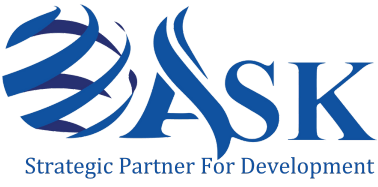

EC-AWARE Baseline Survey Advancing Women-led Agro Businesses to Reach Economic Empowerment
Afghan women’s contribution to reducing food insecurity and poverty and their significant role in natural resource management has been largely unrecognized. A gender assessment carried out in preparation for this project showed women face challenges related to economic empowerment. Rural women have been affected the most, with 4 out of 5 women working informally in these areas. Provincial data shows that as few as 3.8% of women earn money in Badakhshan, 10% of women in Balkh, and 33% in Jawzjan reports having a source of income. Men dominate trade and marketing activities, and women mostly do their agricultural labour inside the house or compound. The COVID-19 pandemic has increased women’s challenges, with 85% of women-owned businesses suspended or closed due to the lockdown. Nearly four decades of conflict have left Afghanistan chronically underdeveloped, with a male-dominated economy heavily reliant on foreign aid and informal employment. Afghanistan’s labour market has severe underrepresentation of women, male dominance of the agriculture sector, structural disadvantages of women and youth, and a high prevalence of irregular, low-paid, and unproductive employment.
The gender assessment findings done by Concern suggest that women need permission, practical and financial support from their husbands or male family members in the northern region to engage in business activities and women confined to traditional trades such as handicrafts or homestead gardening.
The value chain assessment found four value chains with the most significant potential for women in the target provinces, and they are; Dairy products, Fruits and Vegetables, Saffron, and Almonds. However, women have insufficient access to quality productive assets such as processing, packaging equipment, and transport services for their products. This lack results in poor quality and quantity, which minimizes profits. Also, women have insufficient technical knowledge regarding production and processing, making them less competitive than their male counterparts. Generally, while women produce small-scale agricultural products, there is a need to scale up and diversify producti
Afghan women’s contribution to reducing food insecurity and poverty and their significant role in natural resource management has been largely unrecognized. A gender assessment carried out in preparation for this project showed women face challenges related to economic empowerment. Rural women have been affected the most, with 4 out of 5 women working informally in these areas. Provincial data shows that as few as 3.8% of women earn money in Badakhshan, 10% of women in Balkh, and 33% in Jawzjan reports having a source of income. Men dominate trade and marketing activities, and women mostly do their agricultural labour inside the house or compound. The COVID-19 pandemic has increased women’s challenges, with 85% of women-owned businesses suspended or closed due to the lockdown. Nearly four decades of conflict have left Afghanistan chronically underdeveloped, with a male-dominated economy heavily reliant on foreign aid and informal employment. Afghanistan’s labour market has severe underrepresentation of women, male dominance of the agriculture sector, structural disadvantages of women and youth, and a high prevalence of irregular, low-paid, and unproductive employment.
The gender assessment findings done by Concern suggest that women need permission, practical and financial support from their husbands or male family members in the northern region to engage in business activities and women confined to traditional trades such as handicrafts or homestead gardening.
The value chain assessment found four value chains with the most significant potential for women in the target provinces, and they are; Dairy products, Fruits and Vegetables, Saffron, and Almonds. However, women have insufficient access to quality productive assets such as processing, packaging equipment, and transport services for their products. This lack results in poor quality and quantity, which minimizes profits. Also, women have insufficient technical knowledge regarding production and processing, making them less competitive than their male counterparts. Generally, while women produce small-scale agricultural products, there is a need to scale up and diversify production. The scale-up requires quality machinery and assets, technical support, business orientation, and an enabling environment to overcome the socio-economic and structural barriers to women’s economic empowerment in Afghanistan.
on. The scale-up requires quality machinery and assets, technical support, business orientation, and an enabling environment to overcome the socio-economic and structural barriers to women’s economic empowerment in Afghanistan.
Client
Concern Worldwide – Afghanistan
Date
Oct 2021 –March 2022
Service
Research and Statistic
Photos From This Project
Previous
Next
Let's discuss your project !
Contact us today to have a talk about how we can be your strategic partner for development.
